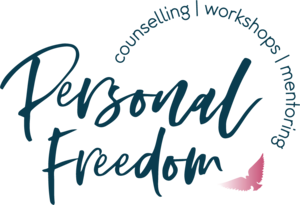If you’re thinking it might be helpful to speak to someone about the challenges you’re facing – be it in your personal life, work life, or in a particular relationship – you might be wondering who is the right person to talk to.
What’s the difference between a “counsellor” vs “psychologist”? Are “therapy” and “counselling” the same thing? It’s not exactly self-explanatory stuff, is it?
So, what is counselling? What exactly does a counsellor do? And how could speaking with a counsellor help you? Allow me to explain.

1. What is counselling?
Counselling is essentially a kind of talk therapy – and talk therapy, in the most literal sense of the word – is all about talking through your thoughts and feelings with a supportive professional.
A counsellor is a trusted professional you can talk to about anything you’re struggling with. What may feel like an insurmountable challenge or a recurring problem, often just needs the objective perspective of a completely confidential third party.
Counsellors provide practical tools and strategies, helping our clients to identify and overcome negative patterns of behaviour and ways of thinking.
When you see a counsellor like me, no two sessions are the same. That’s because a good counsellor will take a person-first approach and will tailor each counselling session to the client’s unique set of circumstances.
Where a counsellor vs psychologist differs is in the methods we use. A psychologist is much more focused on medical diagnosis or assessment and commonly works with clients that have a severe mental health illness.
A counsellor usually helps people struggling with issues on a more conscious level. This means they help people with challenges they’re facing in their daily lives. We too delve into behaviour patterns to understand where difficulties stem from, but we’re more focused on the here and now. Our goal is to arm you with practical tools that allow you to approach life differently.
2. What counselling qualifications are required?
A trained and accredited counsellor will have studied a relevant diploma or degree like a Diploma of Counselling, or a Bachelor of Counselling.
However, it isn’t mandatory to have a particular qualification to become a counsellor. To become an accredited counsellor, you need to register with the International Institute of Complimentary Therapies (IICT), Australia Counselling Association (ACA) or the Psychotherapy and Counselling Federation of Australia (PACFA).
So, how can you spot a qualified counsellor? As someone who has a Diploma in Counselling and 30+ years of experience, I’ll be the first to say that the best thing you can do is ask! Before you start working with a counsellor, ask them what their qualifications are and how long they’ve been practising.
3. Reasons people may seek counselling
People seek counselling for a whole range of reasons. Perhaps you’re feeling anxious or depressed and you don’t know why. Maybe you’re using a substance to numb the pain. Maybe you are feeling lost and need help to find your direction in life. Maybe you are struggling in your relationship and need help to find solutions to move forward. Maybe you’re dealing with grief, trauma or loss, or need help processing a big, unexpectant life change. Or, maybe you’re feeling lonely and isolated.
I speak with people from all walks of life, facing every struggle you could imagine. So, if you’re worried your stuff isn’t “bad enough” to warrant a 1:1 chat with a professional, just know everyone can benefit from the practical help of a counsellor.
4. The different types of counselling
Counsellors work with individuals, families and couples. We deal with a wide range of issues, but some of the most common types of counselling are:
- Anxiety, depression and stress counselling
- Isolation, loneliness and feeling lost
- Conflict resolution counselling
- Bullying or social isolation counselling
- Emotional, physical or sexual abuse counselling
- Grief counselling
- LGBTQI counselling
- Relationship counselling
- Separation and divorce counselling
- Youth counselling
5. Different approaches to counselling
When it comes to therapy, there are five main approaches counsellors may take.
- Pyschodynamic therapy. This approach deals with the subconscious mind and focuses on how past experiences may shape how you feel, think and behave in the present.
- Behavioural therapy. For people who want to change unwanted behaviours, behavioural therapy works to uncover the cause of those behaviours and reinforce new ones.
- Humanistic therapy. This approach focuses on creating a positive, warm and genuine space for people to grow and explore their full potential.
- Cognitive behavioural therapy (CBT). This method is used for a variety of reasons, but the goal of CBT is to unlearn unhelpful or negative thoughts and behaviour patterns.
- Holistic therapy. Instead of one approach to counselling, people who use holistic therapy adapt and blend different theories, delivering a solution specific to their client’s needs.
I use a combination of all of these therapies when working with clients, dependent on what they need at any given time. If you’d like to approach your sessions in a certain way, let me know. The counselling session is about what you need and finding what works best for you.
6. How can counselling help me?
Counselling provides an outlet to talk about and deal with your personal struggles. Some of the ways it might help you are:
- By providing you with guidance and support when you feel lost and overwhelmed
- By giving you a safe, non-judgemental space to just let everything out
- By helping you process your emotions and understand yourself better
- By nurturing your mental well-being and making time for you (because taking care of your mind is just as important as your physical health!)
- By helping you identify and address unhelpful thoughts and behaviours that are weighing you down
- By lifting you up and identifying your strengths
- By identifying and creating personal goals (and helping you achieve them!)
7. What’s involved in a counselling session?
If you’ve never worked with a counsellor before, understandably, you may be a little anxious about what you can expect from your first counselling session
Your first counselling session is all about you and your counsellor getting to know one another. It isn’t an interrogation.
A good counsellor will allow you to start the conversation in whichever way you feel most comfortable and will listen to whatever you want to discuss, before sharing personalised tools and strategies to help with whatever circumstances you’re facing
From that first counselling session, there really is no “one-size-fits-all” approach. At times, you will guide your sessions, discussing what organically comes up and at others, they may take the lead.
Everyone is different, and what works with one person, might not work for another. This is an often overlooked benefit of working with an experienced counsellor.
You and your counsellor can decide on the frequency of your sessions and for how long they continue. You could see each other a handful of times and then call it quits or check in on a long-term, ongoing basis.
It’s important to note that you can stop seeing a counsellor if you feel like they’re just not for you. A good counsellor will absolutely never take offence at this.
And it’s equally important to note that if you have a bad experience with a counsellor, that doesn’t mean you’re doomed to having a bad experience with every counsellor. The right counsellor for you is out there – it might just take a bit of trial and error to find the “one”.
